
Mid-November 2022 to mid-January 2023
HEADLINE NEWS
Leading the pack as the best new record was southern Africa's second White Wagtail. It was found at the Sappi wetlands in Stanger in KwaZulu-Natal, where it spent four days before disappearing. The only previous record of this species in southern Africa was one seen, also for only four days, at Rooisand Nature Reserve near Kleinmond in the Western Cape in January 2018.
Another excellent find was the subregion's 13th Red-necked Buzzard, seen in Mahango Game Reserve in Namibia. This species has an interesting history in southern Africa and was only confirmed when a juvenile bird was photographed in July 2014 in the Buffalo Reserve in Namibia. Once people became aware of it, a few other records surfaced from the archives, with the first record for the subregion dating back to August 2001 in the Kgalagadi Transfrontier Park. Another two records then came to the fore pre-dating the Buffalo Reserve bird singletons seen in March 2009 at Ngepi Camp in Namibia and in August 2012 in Mahango Game Reserve. We've subsequently discovered a few more records: individuals were seen in July 2014 in Chobe National Park; in January 2015 at Kasane Forest Reserve; the massively popular bird in December 2016 at Stilbaai in the Western Cape that remained until February 2017; in February 2018 at Rundu Sewage Works; in March 2018 from Mbwabwata National Park; near the Krantzkop Toll Plaza in March 2020; and most recently near Santawani, south of Moremi South Gate, in January 2021.
This story is from the March 2023 edition of African Birdlife.
Start your 7-day Magzter GOLD free trial to access thousands of curated premium stories, and 9,000+ magazines and newspapers.
Already a subscriber ? Sign In
This story is from the March 2023 edition of African Birdlife.
Start your 7-day Magzter GOLD free trial to access thousands of curated premium stories, and 9,000+ magazines and newspapers.
Already a subscriber? Sign In

EXPLORING NEW HORIZONS
Keith Barnes, co-author of the new Field Guide to Birds of Greater Southern Africa, chats about the long-neglected birding regions just north of the Kunene and Zambezi, getting back to watching birds and the vulture that changed his life.
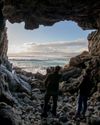
footloose IN FYNBOS
The Walker Bay Diversity Trail is a leisurely hike with a multitude of flowers, feathers and flavours along the way.
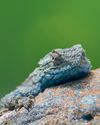
Living forwards
How photographing birds helps me face adversity
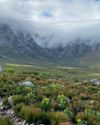
CAPE crusade
The Cape Bird Club/City of Cape Town Birding Big Year Challenge
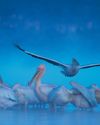
water & WINGS
WATER IS LIFE. As wildlife photographer Greg du Toit knows better than most.
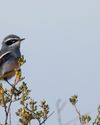
winter wanderer
as summer becomes a memory in the south, the skies are a little quieter as the migrants have returned to the warming north. But one bird endemic to the southern African region takes its own little winter journey.
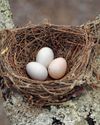
when perfect isn't enough
Egg signatures and forgeries in the cuckoo-drongo arms race

Southern SIGHTINGS
The late summer period naturally started quietening down after the midsummer excitement, but there were still some classy rarities on offer for birders all over the subregion. As always, none of the records included here have been adjudicated by any of the subregion's Rarities Committees.

flood impact on wetland birds
One of the features of a warming planet is increasingly erratic rainfall; years of drought followed by devastating floods. Fortunately, many waterbirds are pre-adapted to cope with such extremes, especially in southern Africa where they have evolved to exploit episodic rainfall events in semi-arid and arid regions. But how do waterbirds respond to floods in areas where rainfall - and access to water - is more predictable? Peter Ryan explores the consequences of recent floods on the birds of the Western Cape's Olifants River valley.
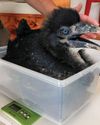
a star is born
It’s every producer’s dream to plan a wildlife television series and pick the right characters before filming.